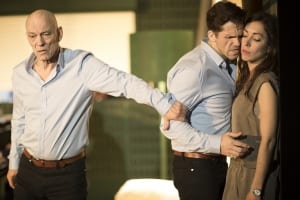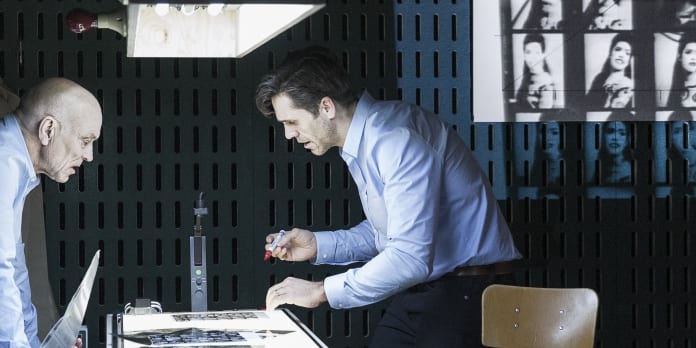Burdened by a forbidden muse, Leos Janacek’s 1919 song cycle, The Diary of One Who Disappeared, serves as an allegoric recount of late-life love. Belgian theatre director Ivo van Hove makes his Royal Opera debut in this staged production, collaborating alongside Flemish theatre company, Muziektheatre Transparant. Having had its run throughout Europe and the US, van Hove’s production takes on the refurbished Linbury theatre.
Leading its audience through a narrative ridden with the yearning for youth, the cycle itself comprises of 22 Czech songs for tenor and piano; three of which are for a small female choir, with a mezzo-soprano representing the work’s inspiration, Zefka. The cycle discusses an illicit affair between a boy who has fallen in love with a gypsy girl; a dynamic societal taboo, leaving both his family and village to be with her. Strikingly, the work’s sentiment draws overt parallels with the composer’s own life, having fallen in love with Kamila Stösslová — a woman 37 years his junior. Despite both parties being married and their acquaintance with one another exceptionally brief in 1917, their secret correspondence via letters lasted for 11 years. Stösslová’s influence on the composer is prevalent amid many of Janacek’s works; Katya in Kat’a Kabanovaa, Emilia Marty in The Makropulos Affair, and of course, Zefka in this cycle.

French mezzo-soprano Marie Hamard confidently makes her ROH debut in the role of Zefka. Poised and melancholic on stage, we are first introduced to her on what appears to be another trivial day as a forensic darkroom technician. Set designer, Jan Versweyweld appropriately immerses us into a grimly lit scene; chemical baths, projectors and musky carpets. The work’s temperament is equally as bleak, with Hamard’s Zefka truly masterful. The richness of her lower register underscores the often demanding Czech text-setting, though, her assured enunciation guides the audience. As for British tenor Ed Lyon; presumably playing the youthful Janacek, his stage presence and vocal delivery excellently capture the strife the role demands. Projection – be it at either end of the vocal spectrum, is executed attentively. Both leads are also capable actors; ranging from sheepishly tenuous to overtly erotic. Though, perhaps a lack of clear direction on Krystian Lada’s dramaturgical part, leaves us asking why Zefka is as untouchable as we imagine her to be. Wim van der Grijn’s portrayal of the reflective Actor is genuinely poignant. Most symbolic is perhaps the symmetrical tableaus between him and Lyon – mirroring each other’s nervous body language in moments of nostalgia.
Making her ROH debut as musical director in this production, Lada Valesova is exceptional in her pianistic role. Utmost attentive to the demands of Janacek’s glimmering angularities, Valesova’s accompanying and solo passages are uncompromisingly fluent. Belgian composer, Annelies Van Parys’ additional five songs tastefully accentuate the soundscape we are presented with. Consequently, Van Hove’s approach to this work is far from conventional. As well as incorporating the extra pieces of music, van der Grijn enters the final scene nestling the urn of his dead wife. After emptying and rinsing her ashes into a sink with robotic autonomy, the Actor reads and sets alight extracts of genuine letters between Janacek and Stossolva. This harrowing moment is put to bed with the Actor – whose lights and covers are drawn to end this production.

